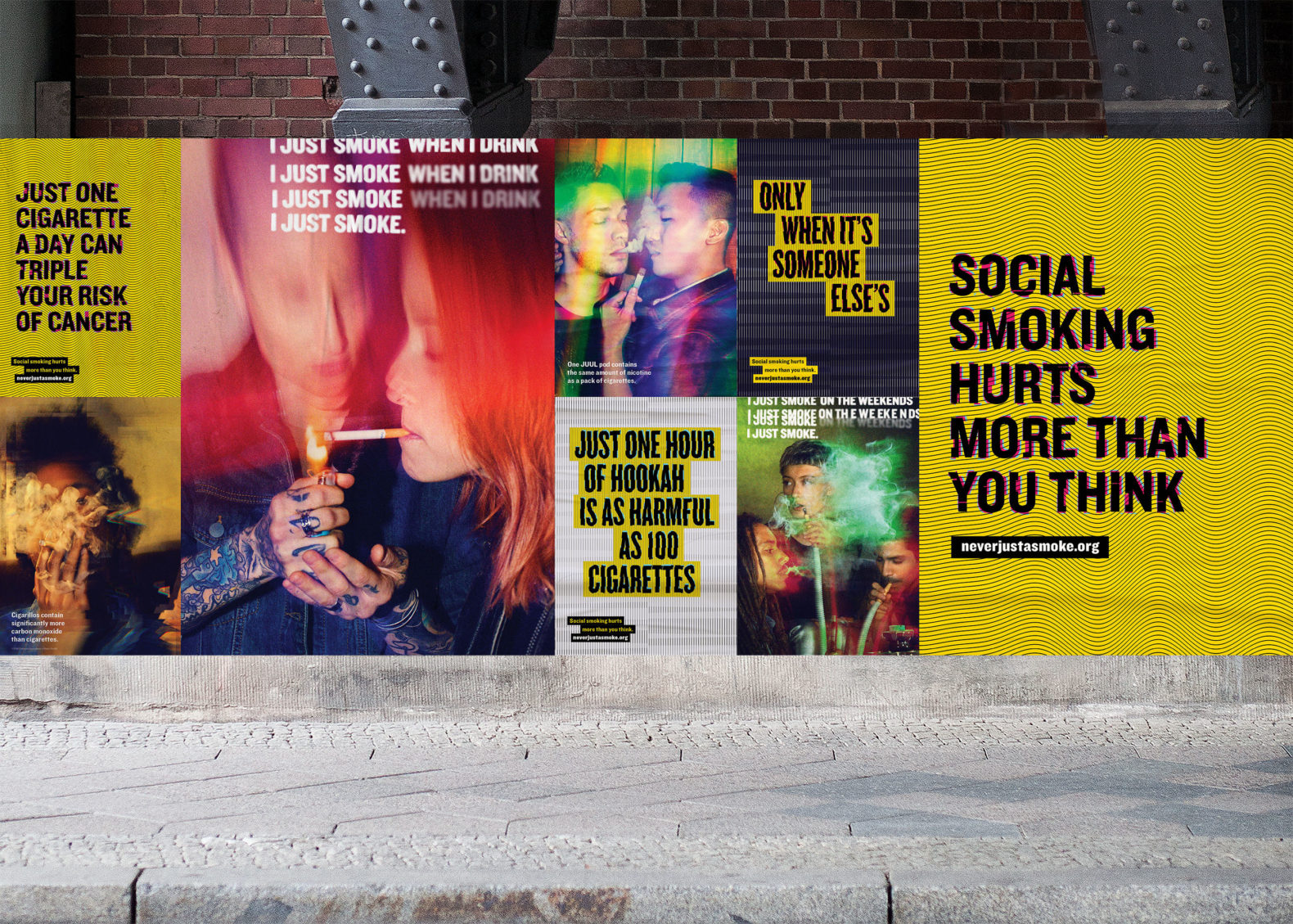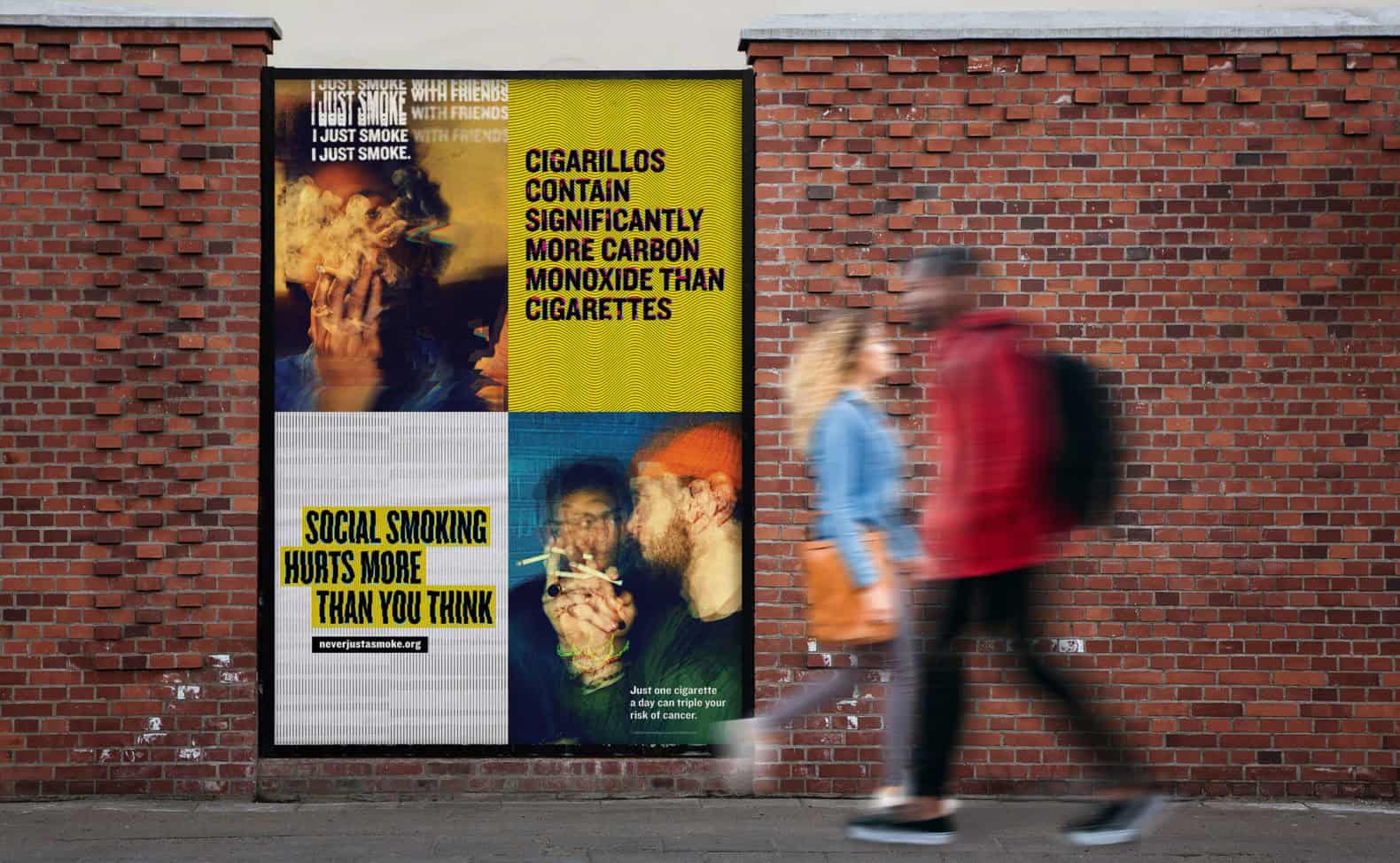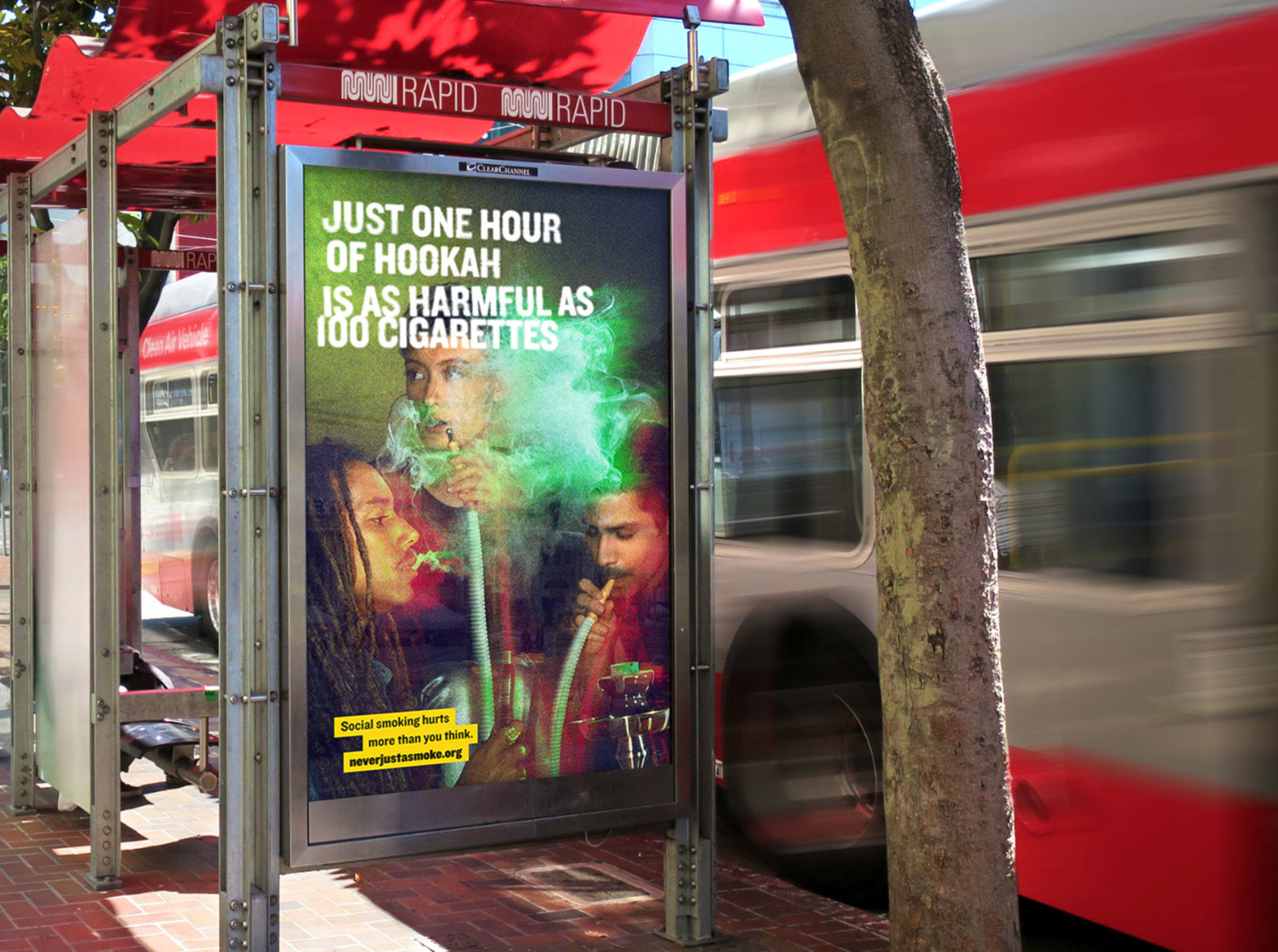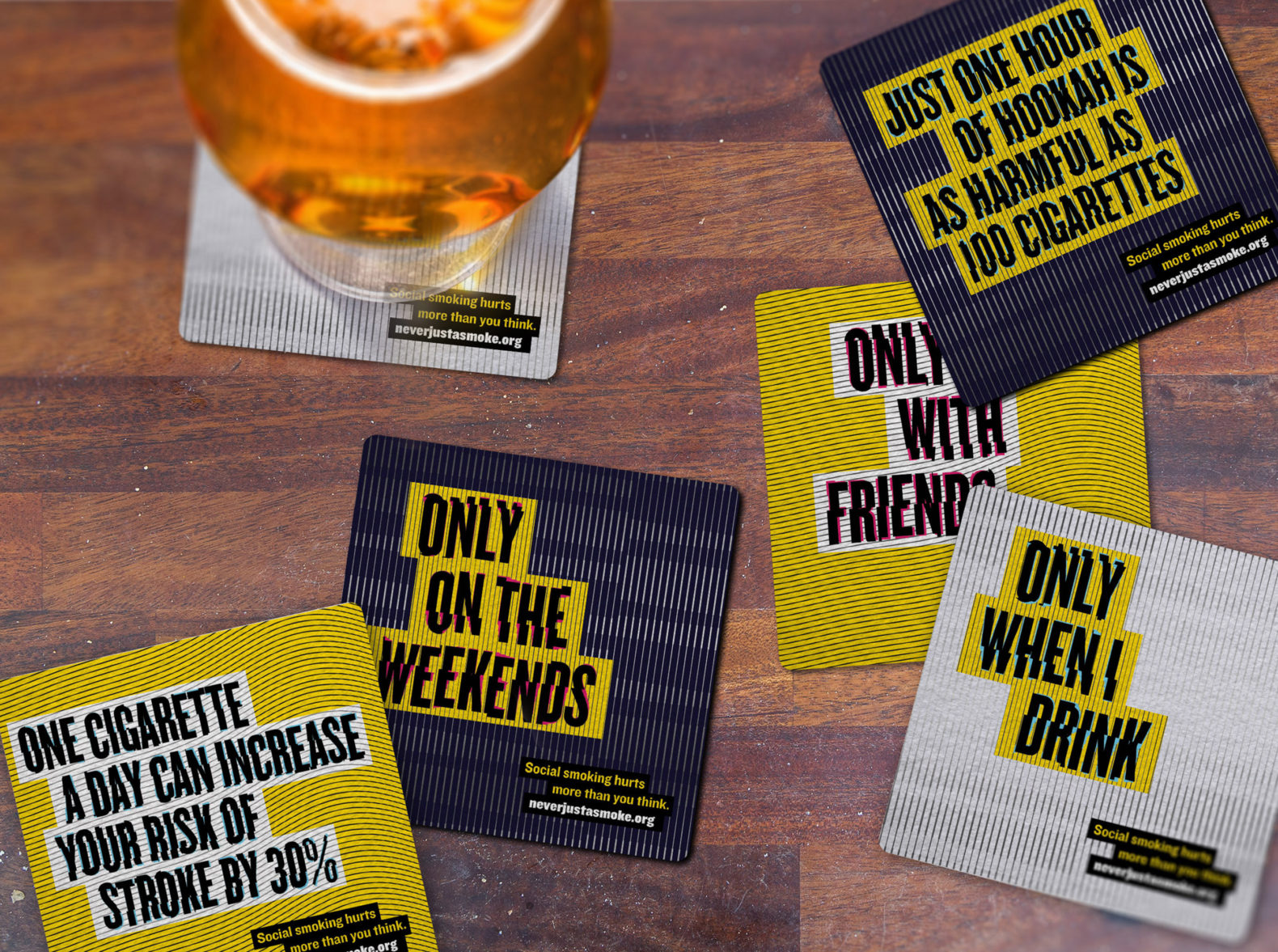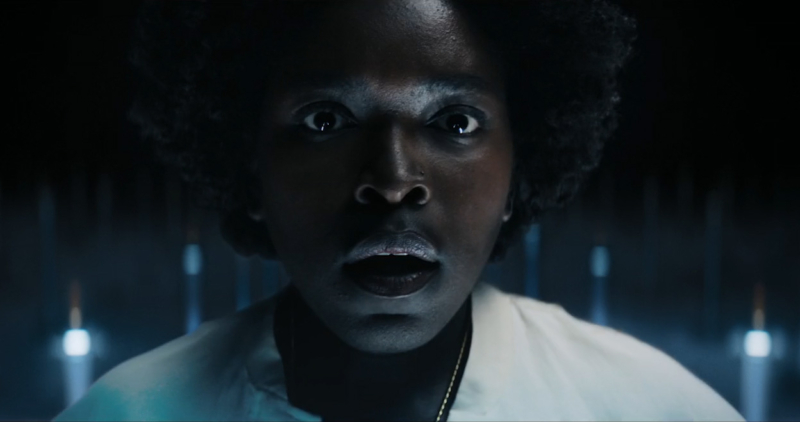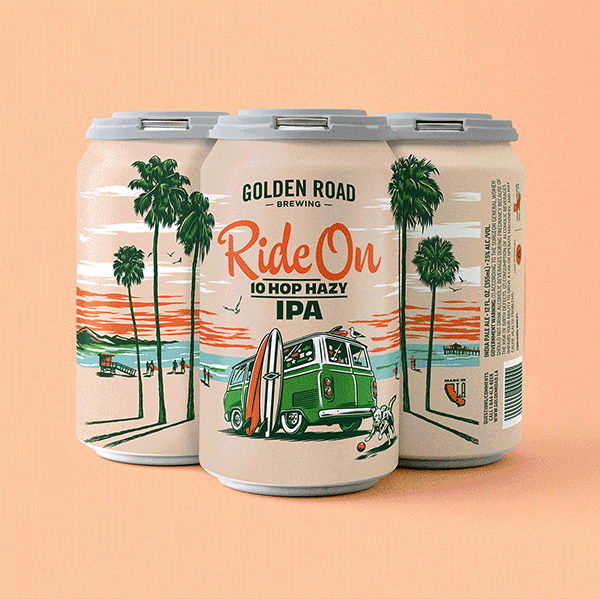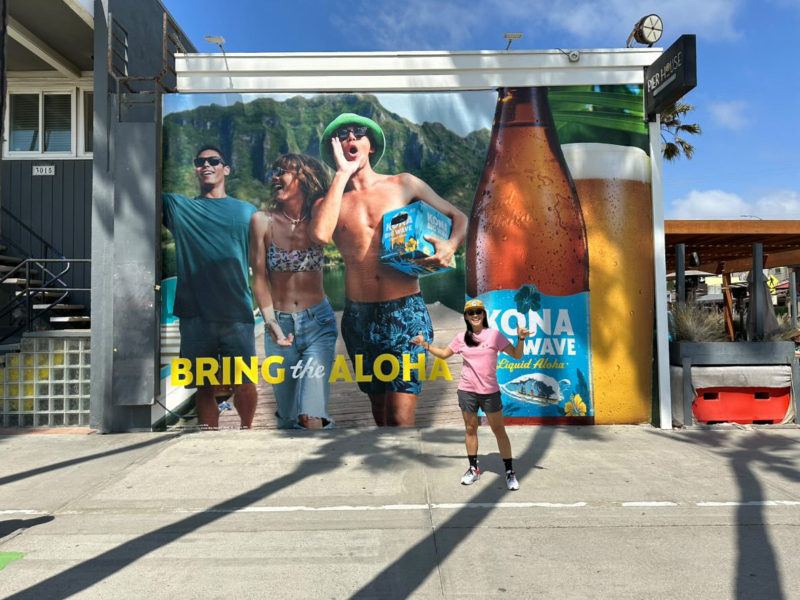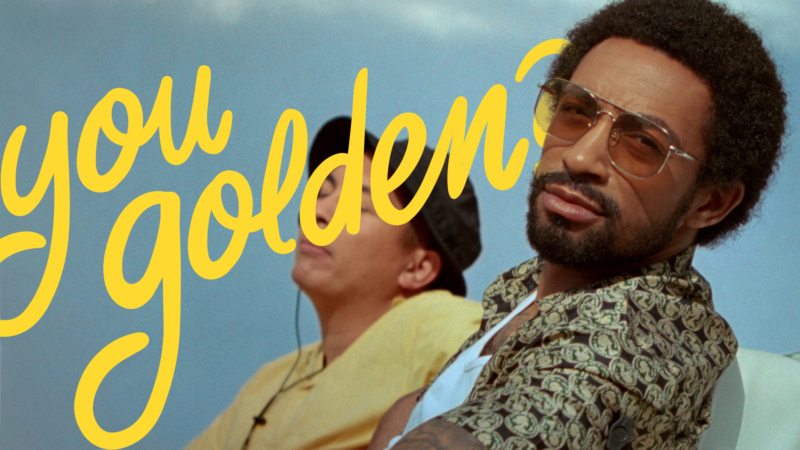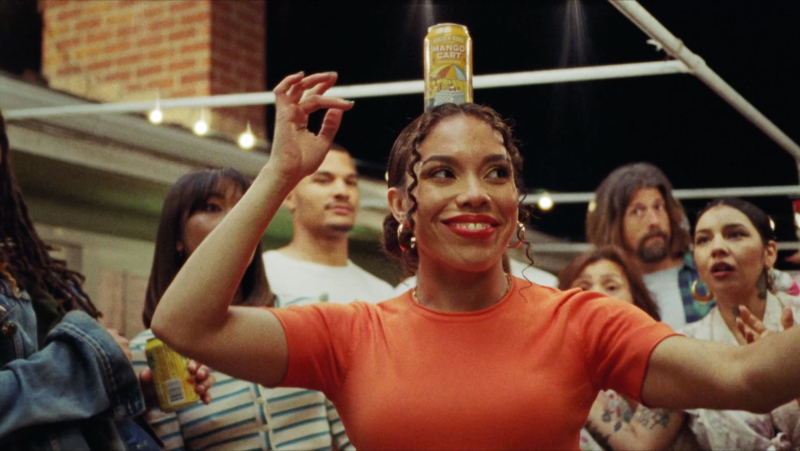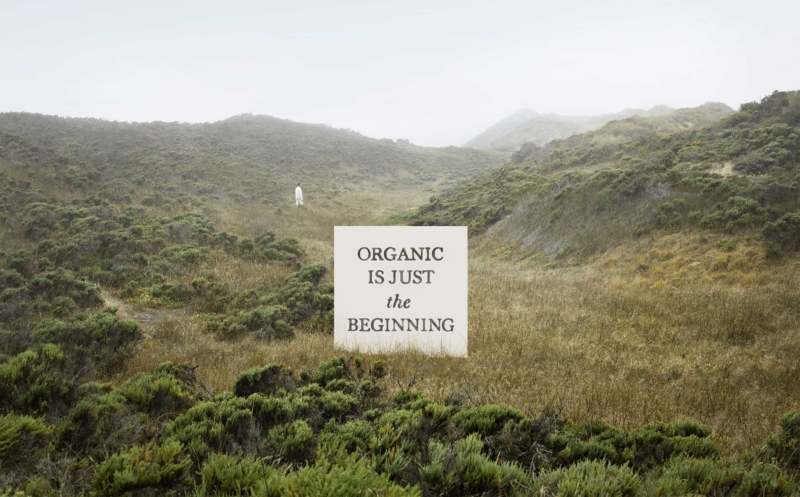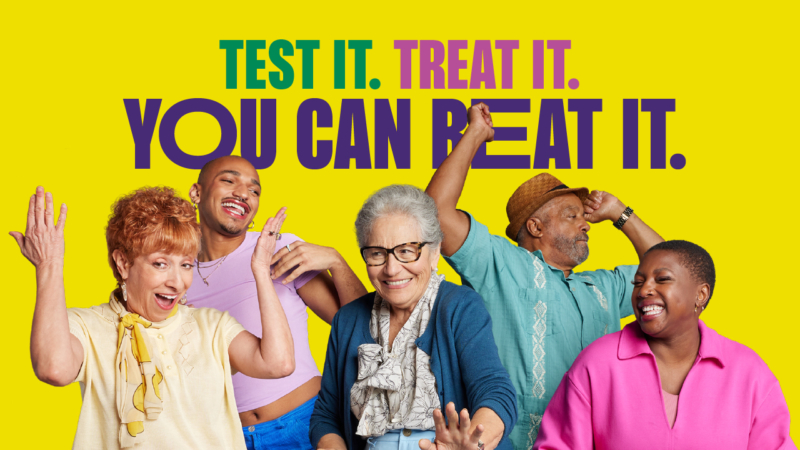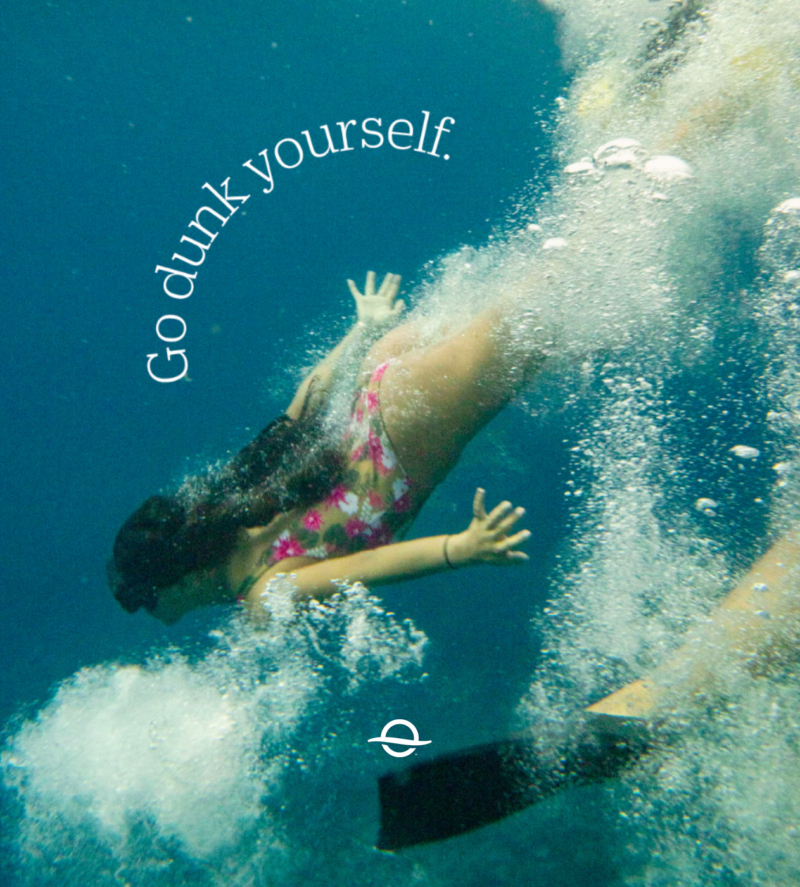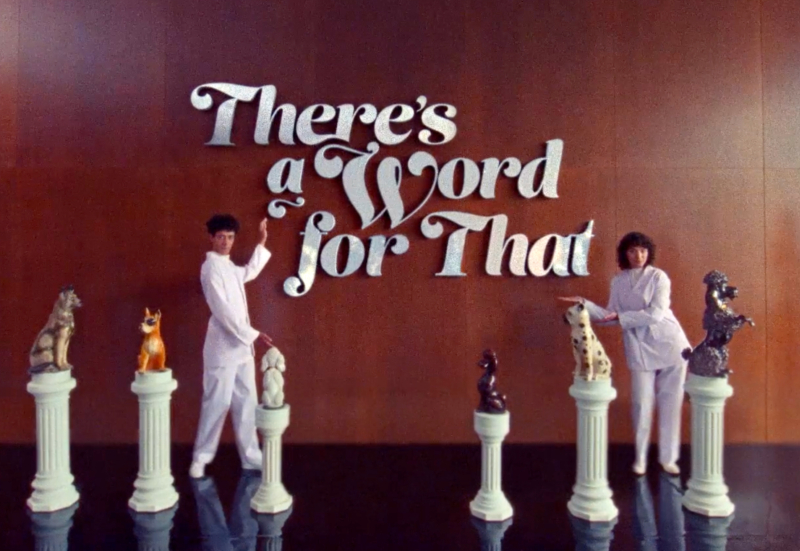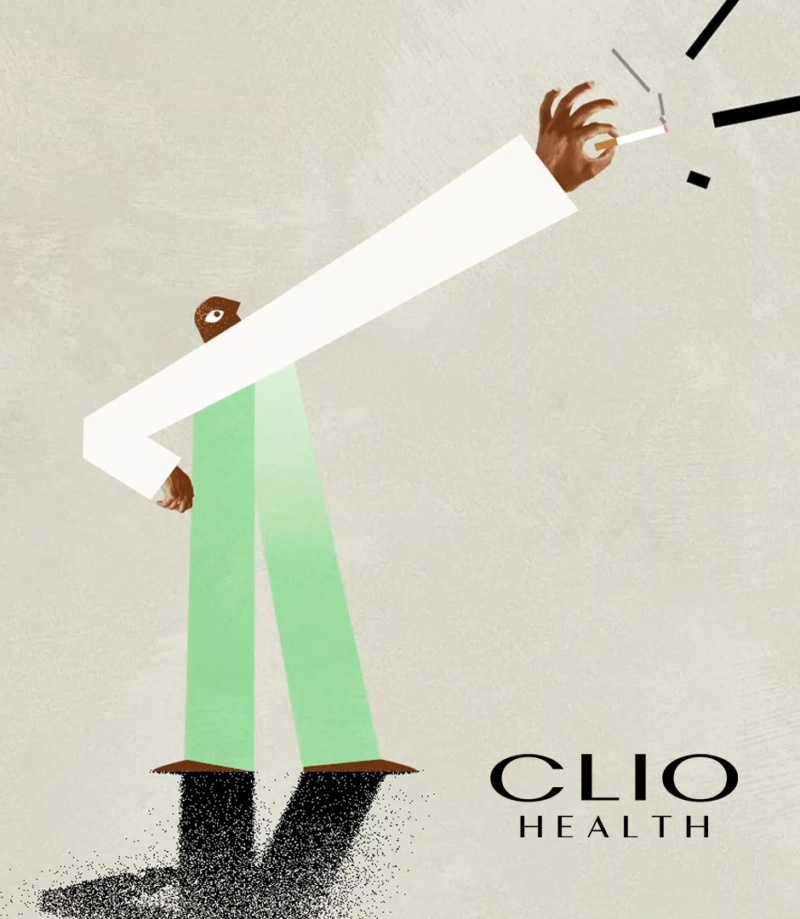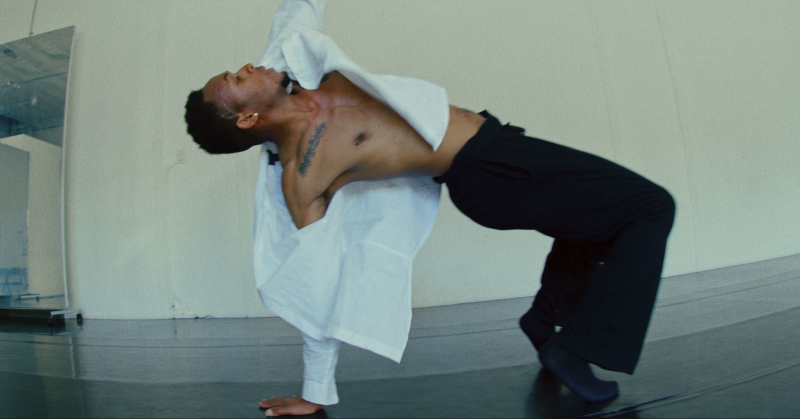Work
Daily smoking has been on the decline for decades and yet casual smoking is actually on the rise. How do we get at-risk groups to see social smoking for what it is: plain old dangerous, unhealthy smoking.
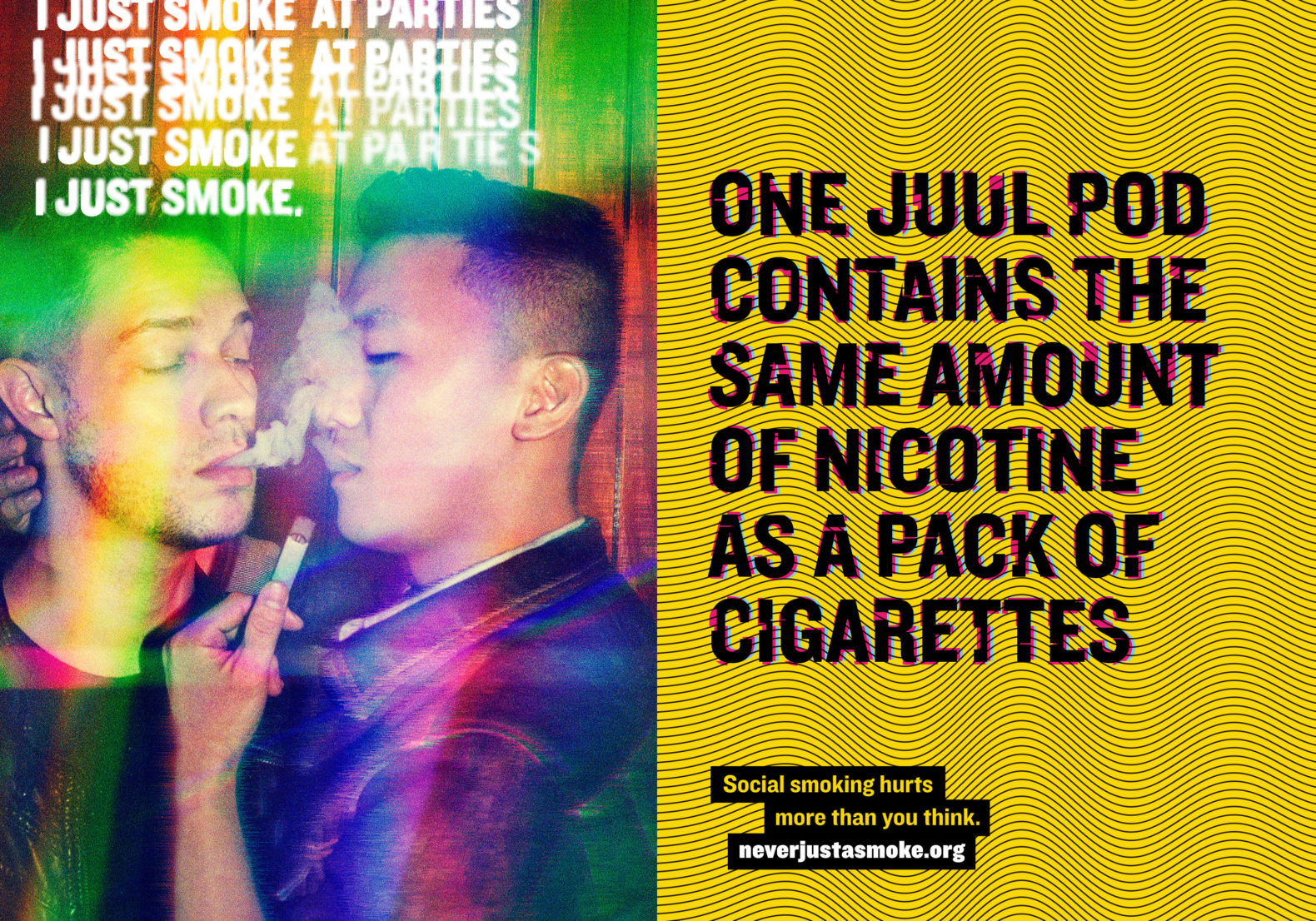
While children of the 1990s and 80s grew up seeing anti-tobacco efforts targeted at heavy ‘pack-a-day’ smokers, this campaign tapped into the insight that social smokers age 21 to 35 typically didn’t view themselves as ‘smokers’ — and thus, underestimated the harm of lighting up socially. CTCP’s “Never Just a Smoke” campaign also combatted the reality that new forms of tobacco — including hookah, cigarillos, JUUL and e-cigarettes — make social smokers less likely to perceive the health risks of occasional use.
Outdoor, digital video, digital audio and radio targeted “smokers in denial” across California — with special focus on reaching LGBTQ, Hispanic, Asian and African-American communities that are at higher risk for social smoking. Digital video appeared around key moments and “stressors” that typically drive people to light up, such as graduation and moving. CTCP also partnered with Buzzfeed on custom “Regrets You Have After A Night Out” video and quiz content to further engage young social smokers. The campaign included online resources at www.neverjustasmoke.org.
In addition to featuring same-sex couples in both digital video and OOH executions, the campaign included animated projections and geo-targeted digital videos near LGBTQ Pride events, as well as posters and coasters at LGBTQ bars across Los Angeles, San Francisco, San Diego and Sacramento.
“After discovering that young people who smoke socially rarely see themselves as smokers, we wanted to play with this distorted perception about the pervasiveness of their habit — as well as its harm,” said Anne Elisco-Lemme, executive creative director, Duncan Channon. “The campaign places young people in true-to-life social situations that force a moment of self-realization about the truth of their smoking and its impact. We strip away the excuses used to defend social smoking — leaving the viewer with the stark reality of their smoking and its health consequences.”
“The campaign also combats the reality that new forms of tobacco — including hookah, cigarillos, and e-cigarettes such as JUUL — make young people less likely to perceive the health risks of occasional use,” said Elisco-Lemme. “It’s all too easy to dismiss something you don’t do everyday as harmless, especially if it doesn’t look or taste like a traditional cigarette.”
